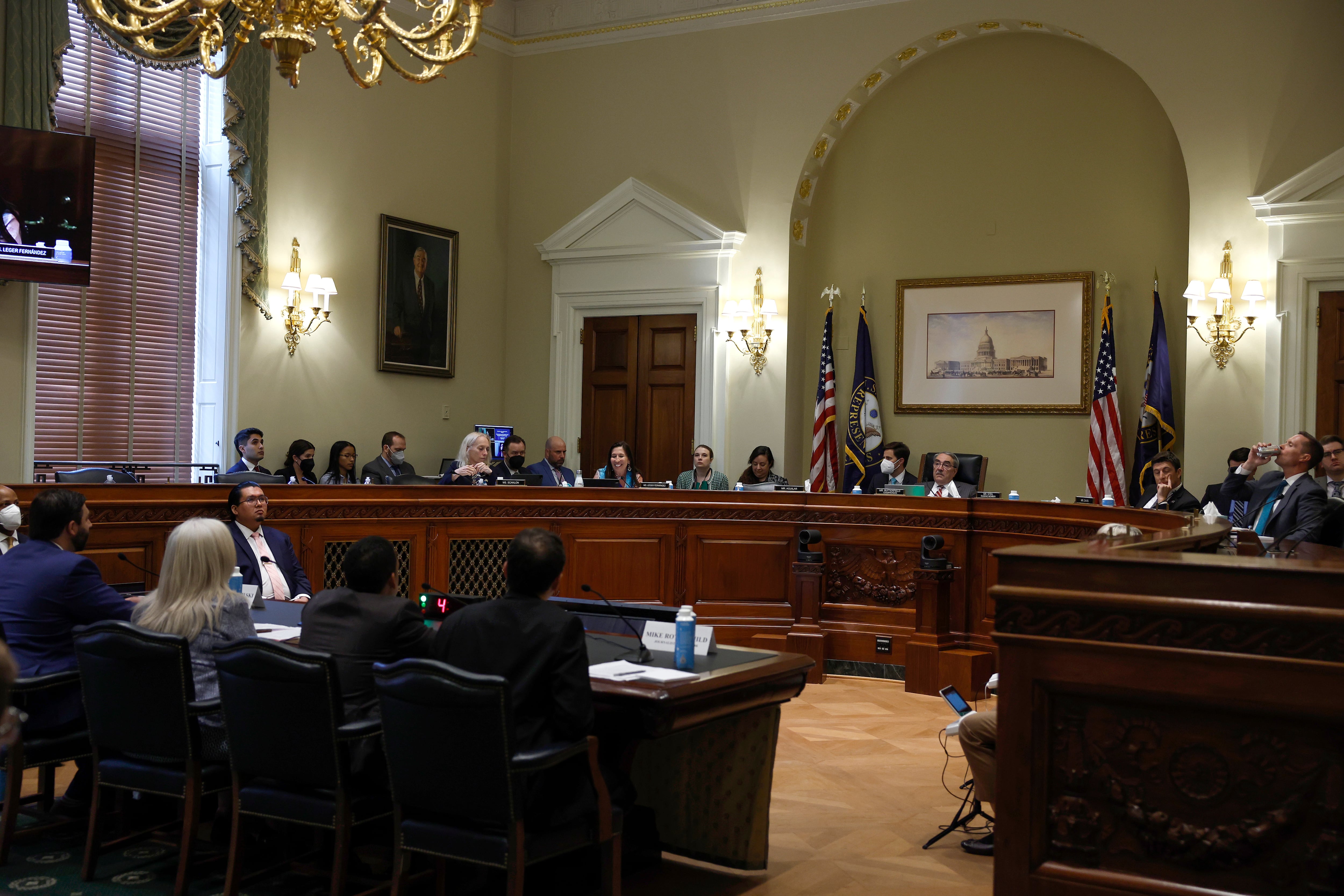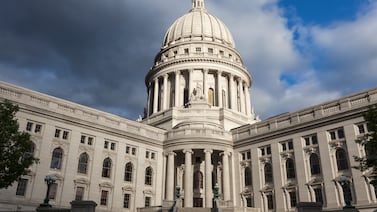A version of this post was originally distributed in Votebeat’s weekly newsletter. Sign up here.
Hi, y’all,
Gone are the days of quiet election administrators! These days, this job gets a heck of a lot of attention, and many county clerks, state officials, and even poll workers are now successfully meeting the moment.
The Jan. 6 commission’s hearings offer a menu of effective election worker testimony to select from. And while Congress can barely manage to eke out even the most paltry bipartisan agreements, election administrators from both parties have joined together to advocate for additional federal and state funding. Earlier this month, a bipartisan group of election officials went to Washington as part of a campaign called Faces of Democracy to lobby lawmakers for election funding and protection from harassment.
Election officials are also reaching out to state lawmakers, trying to make sure new election legislation is workable. The Florida Supervisors of Elections, for example, successfully lobbied to exempt the donation of polling places from a new law prohibiting acceptance of donations for elections.
The advocacy we are seeing from election officials now was impossible to conceive of when I started covering this beat in 2016, and it’s been captivating to watch so many knowledgeable election administrators find their voice. It’s also been fascinating to be part of the process as these county and state officials figure out how to operate as public figures in roles that were once largely anonymous.
The Elections Group has put out a fantastic communications guide for election administrators written by Pam Fessler, the indomitable former NPR journalist who has covered voting for years. I was happy to be a small part of it. CTCL and Hart Intercivic both recently held panels I participated in about working with the media.
I know I kept screaming about this stuff earlier this year. I wrote that “election administrators across this country hesitate to speak out and only rarely put their names on their quotes when they do.” I also wrote that election administrators routinely defend their own offices while refusing to stand up for their colleagues. Now, I see this changing, and I want you to know I see it. I realize I’m far from the only and not even the most annoying voice (some of you disagree, I see you emailing me) calling for this, but I am, nonetheless, thankful for the progress.
Please keep coming to me and to Votebeat’s reporters with questions about how best to interact with the media. Do you think something might be a story but you’re not sure? Call us. Has a reporter you don’t know called you and you aren’t sure if you should respond? Ask a reporter you trust for their opinion.
Our job is giving the public accurate and practical information about voting and elections, and we can’t do that well unless election administrators use us as the portal to the public we really are. It’s good for democracy that election administrators are more willing to speak up and speak out. We need your voices.
Back Then
Congress did not set a uniform day for presidential elections until 1845, when the Presidential Election Day Act declared they would be held “the Tuesday next after the first Monday in the month of November.” Congress borrowed this idea from New York state, mostly because it achieved a lot of goals all at once: It allowed people to go to church on Sunday, travel to vote, and be home by Wednesday (which was typically market day). The body was moved to enact such a requirement because presidential elections tended to drag on for weeks, given the varying days chosen by each state as its Election Day. For example, the election of 1844 lasted from Nov. 1 until Dec. 4, which might be something that people complaining about the wait for results after elections to keep in mind.
New From Votebeat
In Arizona, one of the most significant election bills this legislative session is provoking an outcry from voting advocates who say it could disenfranchise naturalized citizens and other voters by canceling their registrations. Gov. Doug Ducey quietly signed it into law this month, even though he had previously vetoed a similar bill, Rachel Leingang reports for Votebeat Arizona.
Votebeat is setting up a Reader Advisory Board, and you can apply here. We’re planning to meet four times a year with a group of readers who are dedicated to improving our coverage and helping us deepen our relationship to the communities we cover.
In Other Voting News
- At the National Association of Secretaries of State summer conference in Baton Rouge, election officials said they are preparing to combat insider threats to election security, Politico’s Zach Montellaro reports.
- Election officials are also on the lookout for a wide variety of threats this upcoming election season, reports the Associated Press, including physical and digital attacks and both national and domestic interference.
- More than 60,000 voters in Pinal County, Arizona, received incorrect early voting ballots. County officials blamed human error and are still working on a plan to correct the problem.
- A member of the Oath Keepers — a far-right organization with members who were part of the Jan. 6 attack on the Capitol — had a “death list” with the name of a Georgia election official and a related family member on it, according to details released by the U.S. Department of Justice.
- The voter registration deadline in Atchison, Kansas, for the upcoming primary election was extended from June 23 to July 12, matching the deadline in the rest of the state after an outcry.
- A federal judge declined to dismiss a lawsuit filed by Native American tribes in North Dakota against the state. The tribes say new state legislative district maps dilute their political power and violate the Voting Rights Act.
- Ohio will have a second primary this year after Republicans and Democrats failed to agree on new districts for the upcoming legislative session, a rare situation that is expected to cost taxpayers more than $20 million.
- A coalition of groups seeking to add specific voting rights to the Michigan Constitution submitted 670,000 signatures to officials this week as part of its effort to put an initiative before voters on the November ballot.
Good News of the Week
By Christian McCann, Votebeat intern
A 14-year-old’s innovative submission for an “I voted” sticker contest has gone viral over the past few weeks. The drawing, which consists of a purple and pink cupcake-shaped creature with neon hair and spider legs, was part of an initiative by election officials In Ulster County, NY, to boost engagement of the election process among teenagers. The submission has received more than 150,000 votes out of roughly 170,000, in contrast to the total 2,200 votes in last year’s contest. Officials hope that the attention garnered by the drawing will encourage young people around the country to engage with their local governments and learn about voting.
Jessica Huseman is Votebeat’s editorial director and is based in Dallas. Contact Jessica at jhuseman@votebeat.org.





